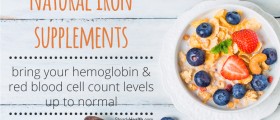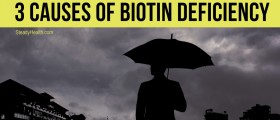
Folic acid, the vitamin also known as B6, folate, folacin and pteroylglutamic acid, is an important vitamin whose deficiency may leads to substantial health problems.
Folic acid is important for many processes and functions of the human body, like the cell growth and division and the production of red blood cells. The required amount of folic acid an adult should take daily is 400 micrograms.
There are many signs of symptoms of folic deficiency and if they occur they should be examined in order to determine the treatment against folic acid deficiency.
Folic acid keeps the central nervous system in order so among the first signs of folic acid deficiency there is irritation, agitation, depression, forgetfulness and light headedness, Paleness and lack of concentration may be present as well. Decreased levels of folic acid cause one kind of anemia.
Persons who have folic acid deficiency also may experience loss of appetite and, consequently, weight loss.
Some diseases, like anemia, diarrhea, gastrointestinal problems and even some types of cancer may be a sign of folic acid deficiency.
Other, less observed symptoms include abdominal pain, chest pain, trouble breathing, smooth and sore tongue, cracked lips and irregular heartbeat.
Folic acid deficiency may cause skin problems, like gray or brown skin pigmentation, and other conditions and problems like hair fall, depression, fatigue and problems in circulation.
A proper intake of folic acid is extremely important for pregnant and breast-feeding women. Deficiency of this important vitamin may cause damage to the fetus or the newborn baby and also increases risk of miscarriage and birth defects of the baby’s spine and brain. This is why pregnant women and women who are trying to get pregnant are advised by the doctors to increase their folic acid intake.
The absorption of folic acid decreases during pregnancy and lactation period so it needs to be supplemented. Also, alcohol abuse and stomach diseases like celiac and gastric diseases may contribute to reduced absorption of folic acid.
In case of folic acid deficiency it is important to know what caused it, so the course of action will aim to fix the cause.
Folic acid deficiency can be cured with increased intake of foods that are rich in this vitamin. Those foods includes green leafy vegetables like spinach and fenugreek, soybean, beans, salmon, citrus fruits, lettuce, turnip, asparagus and sunflower seeds.
The other option, especially for the persons with severe folic acid deficiency, is taking various supplements available over the counter. There are many manufacturers of these supplements so it is best to consult a doctor who will advise on which brand to take.

















Your thoughts on this
Loading...